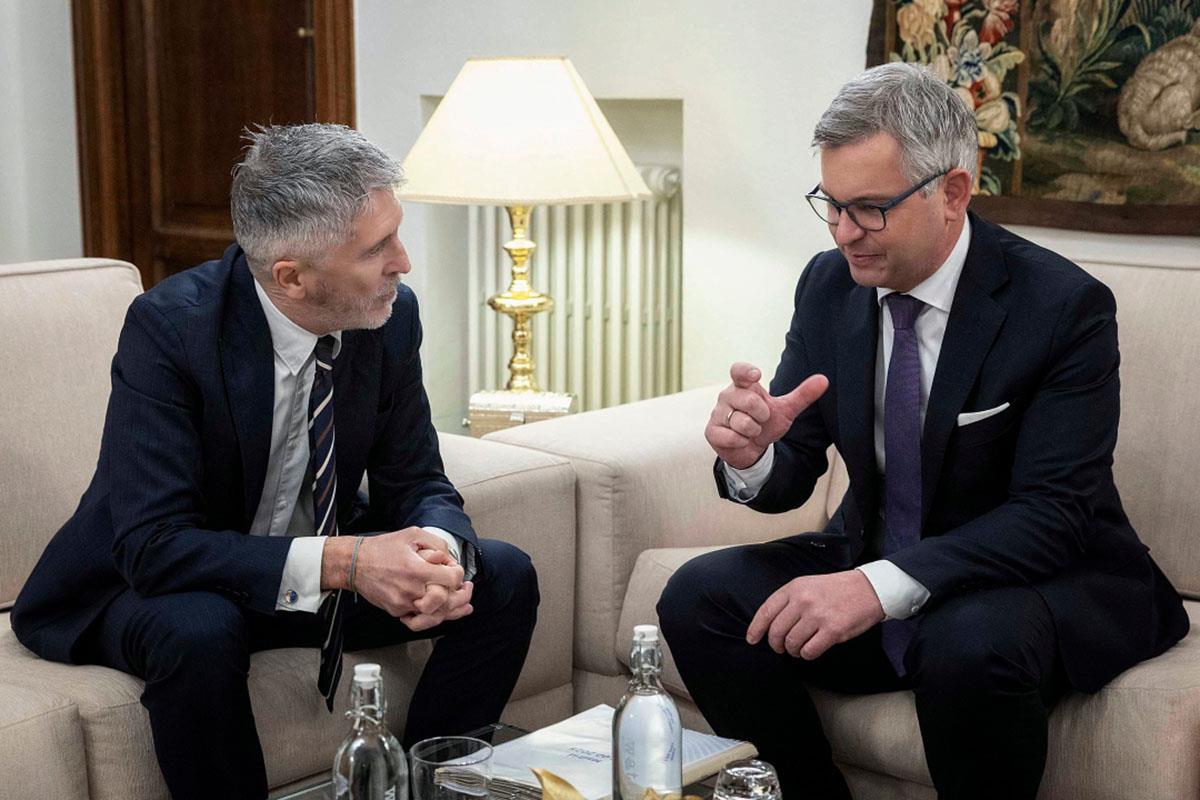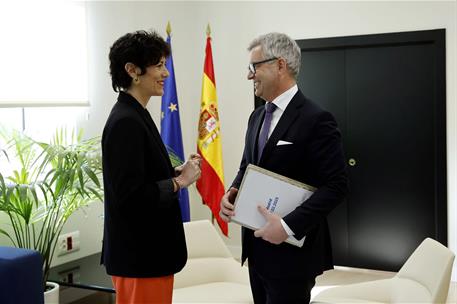Grande-Marlaska confirms to Commissioner Brunner that Spain is progressing "at a good pace" in the implementation of the Pact on Migration and Asylum
News - 2025.2.17
 The Minister for Home Affairs, Fernando Grande-Marlaska, and the European Commissioner for Home Affairs and Migration, Magnus Brunner, during the meeting held in Madrid
The Minister for Home Affairs, Fernando Grande-Marlaska, and the European Commissioner for Home Affairs and Migration, Magnus Brunner, during the meeting held in Madrid
The Minister for Home Affairs, Fernando Grande-Marlaska, has told the Commissioner for Home Affairs and Migration, Magnus Brunner, that the Pact on Migration and Asylum is an "absolute priority" for Spain, and has confirmed that its implementation is progressing "at a good pace and in accordance with the planned deadlines", with a view to its entry into force in June 2026.
During a meeting at the Department's headquarters in Madrid, Grande-Marlaska thanked the new European Commissioner for the "close, rigorous and effective" dialogue of his team and told him that the National Strategy on Migration and Asylum will be ready in June.
The Minister for Home Affairs also expressed Spain's willingness to "anticipate" some of the measures in the pact, "but always respecting the balance between responsibility and solidarity" that has guided the drafting of the agreement "and integrating elements of the external dimension", he specified.
On Frontex, Grande-Marlaska urged Brunner to promote the modification of the agency's regulations with the aim of facilitating its action outside the European Union. "We consider it a priority for Frontex to be able to participate in operations in third countries", the minister urged, citing as an example the Hera mission, "which was decisive in tackling the migration crisis from West Africa in 2006 and 2007".
Along these lines, the Minister for Home Affairs advocated an increase in human and material resources to combat trafficking networks on the Atlantic coast, an investment to be included in the next Multiannual Financial Framework, according to the minister, "and which includes equipment and training for local security forces".
During the meeting, they also discussed the drafting of the future European Internal Security Strategy, promoted by the European Commission. Grande-Marlaska stressed the importance of strengthening the technological capabilities of the security forces and "guaranteeing legal access to the data necessary" to carry out criminal investigations.
The minister took advantage of the meeting to give the commissioner a copy of the joint declaration approved last Friday at the IV Ministerial Meeting of the Coalition of European Countries against Serious & Organised Crime, held in Cadiz. The text sets out the recommendations of the seven member states (Belgium, France, Germany, Italy, the Netherlands, Spain and Sweden), for inclusion in the EU's Internal Security Strategy, in areas such as prevention, money laundering, information exchange and logistics hubs.
Non official translation





